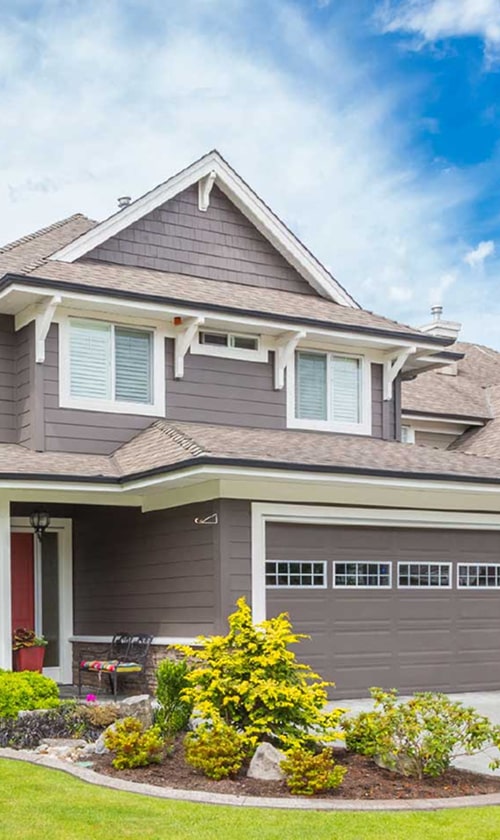
For many homeowners, the air conditioner is a vital component of their comfort and quality of life, especially during hot summer months. When it starts to fail, the decision to repair or replace it can be daunting. This choice involves weighing immediate needs against long-term benefits and costs. Understanding the intricacies of both options is crucial for making an informed decision.
Making the Smart Choice – Repair or Replace Your Air Conditioner
Air conditioners typically last between 10 to 15 years, but this can vary based on maintenance, usage, and environmental factors. As air conditioners age, their efficiency gradually decreases, leading to higher energy consumption and reduced cooling capacity. Key indicators that an air conditioner is nearing the end of its useful life include frequent breakdowns, unusual noises, and a noticeable decline in cooling effectiveness.
Factors Influencing the Decision to Repair or Replace
- Age of the Air Conditioner: Units older than 10 years are likely nearing the end of their efficient lifespan.
- Frequency and Cost of Past Repairs: Regular and costly repairs indicate underlying issues that may not be fixable in the long term.
- Changes in Energy Efficiency: An increase in energy bills can be a sign of decreasing efficiency.
- Availability of Parts: Older models may require parts that are difficult to find or expensive to purchase.
- Warning Signs of a Failing System: Persistent issues like noise, short cycling, and uneven cooling are signs of a failing system.
Making the Decision: Repair or Replace?
Deciding whether to repair or replace an air conditioner is a significant decision for homeowners, involving several key considerations:
1. Age and Condition of the Unit
The age of the air conditioner is a primary factor. Units that are less than 10 years old and have been well-maintained are usually good candidates for repair. However, if the unit is over 15 years old, replacement might be a more cost-effective and reliable option.
2. Cost of Repairs vs. Replacement
Compare the cost of repairs to the price of a new unit. A good rule of thumb is that if repair costs exceed 50% of the value of a new air conditioner, replacement might be the better choice. Additionally, consider the frequency of repairs – if you’re calling for service more than once a year, it’s likely time to replace.
3. Energy Efficiency and Utility Bills
Older units tend to be less energy-efficient, leading to higher utility bills. If you’ve noticed a significant increase in your energy costs, it might be due to the declining efficiency of your air conditioner. Newer models with higher SEER ratings can offer substantial energy savings over time.
4. Type of Refrigerant Used
If your current unit uses R-22 refrigerant (also known as Freon), which is being phased out due to environmental concerns, consider replacing it. New units use more environmentally friendly refrigerants that are also more energy-efficient.
5. Overall Comfort and Performance
Evaluate how well your current system is meeting your cooling needs. If you’re experiencing uneven cooling, excessive humidity, or other comfort issues, a new, more advanced system might provide significant improvements in comfort and air quality.
6. Future Plans and Longevity
Consider how long you plan to stay in your current home. If you’re planning to move soon, a repair might be sufficient. However, if you’re staying long-term, investing in a new, efficient system can add value to your home and provide comfort for years to come.
7. Environmental Impact
For those concerned about their environmental footprint, replacing an old, inefficient unit with a new, eco-friendly model can be a responsible choice. Newer models are not only more energy-efficient but also use refrigerants that are less harmful to the environment.
8. Warranty and Service Plans
Check if your current unit is still under warranty, as this might cover some repair costs. For new units, consider the warranty and service plans offered, as these can provide added value and peace of mind.
9. Consultation with HVAC Professionals
Finally, consult with HVAC professionals like Weather Masters Of Georgia. They can provide expert advice based on an inspection of your current system, helping you weigh the pros and cons of repairing versus replacing based on your specific circumstances.
6 Signs Your Air Conditioner Needs Repair
- Unusual Noises: Squealing, grinding, or rattling sounds can indicate mechanical issues.
- Insufficient Cooling: If your AC is not cooling as effectively as it used to, it may need a repair.
- Frequent Cycling: Short cycling, where the AC turns on and off more frequently, can be a sign of a problem.
- High Humidity Levels: An AC unit struggling to regulate humidity levels might need repair.
- Water Leaks: Any leakage around the AC unit, either water or refrigerant, is a cause for concern.
- Bad Odors: Musty or burning smells from your AC unit should prompt a service call.
Cost Analysis of Repairing an Air Conditioner
Repair costs for air conditioners can vary significantly based on the issue and the unit’s condition. For instance, fixing an air conditioner that’s not cooling properly could range from $200 to $1,500, depending on the complexity of the problem and the parts required. On the other hand, more significant repairs, such as replacing a compressor, could cost upwards of $1,000. Over time, these repair costs can accumulate, making it less economical to continue repairing an older unit. Additionally, frequent repairs do not necessarily extend the longevity or improve the efficiency of the air conditioner significantly.
6 Signs Your Air Conditioner Needs Replacement
- Age of the Unit: If your AC is more than 15 years old, it might be time for a replacement.
- Frequent and Costly Repairs: When repairs become frequent and expensive, replacement is often more economical.
- Rising Energy Bills: An unexplained increase in energy bills can indicate an inefficient AC that needs replacing.
- R-22 Refrigerant Use: Units using R-22 refrigerant are outdated and should be replaced with more eco-friendly models.
- Inconsistent Temperatures: If your AC can’t maintain consistent temperatures, it may be beyond repair.
- Major Component Failure: If a major component like the compressor fails, it’s often more cost-effective to replace the unit.
Cost Analysis of Replacing an Air Conditioner
The cost of replacing an air conditioner includes the price of the unit itself and installation fees. Prices for new units range from $3,000 to $7,000, influenced by factors like size, brand, and efficiency ratings. Installation costs can vary based on the complexity of the job and any necessary modifications to existing ductwork or electrical systems. Despite the higher upfront cost, newer models are significantly more energy-efficient, leading to lower utility bills and a smaller carbon footprint.
Financial Incentives and Rebates
Many governments and utility companies offer financial incentives for homeowners who upgrade to energy-efficient air conditioning systems. These can include tax credits, rebates, and other programs that can help offset the initial investment in a new, more efficient unit.
When to Call a Professional?
Deciding when to call a professional for your air conditioning needs is crucial for maintaining the system’s efficiency and longevity. Here are some key instances when it’s advisable to seek professional help:
- Routine Maintenance: Regular maintenance by a professional can prevent many common issues and extend the life of your unit.
- Performance Issues: If you notice any decline in performance, such as reduced cooling or strange noises, it’s time to call a technician.
- After a Breakdown: In the event of a system breakdown, a professional can diagnose and fix the issue more accurately and safely than DIY attempts.
- Energy Bill Spikes: An unexpected increase in your energy bills can indicate that your system is not operating efficiently and needs a professional assessment.
- Installation and Replacement: Professional installation ensures that your new unit is set up correctly, which is vital for its performance and efficiency.
- Safety Concerns: If you have any safety concerns, such as electrical issues or refrigerant leaks, it’s essential to contact a professional immediately.
Conclusion
Deciding between repairing or replacing your air conditioner is a significant choice that impacts comfort, costs, and energy efficiency. At Weather Masters Of Georgia, we guide homeowners through this decision, focusing on key factors like the unit’s age, repair history, and energy efficiency.
Older units, especially those over 15 years, often benefit more from replacement, especially when repair costs exceed half the price of a new model. Newer, energy-efficient air conditioners not only lower utility bills but also enhance home comfort and environmental sustainability.
Consult with our HVAC experts to evaluate your specific situation and make an informed, cost-effective decision for your home’s cooling needs. Remember, the right choice in air conditioning can lead to long-term savings and improved home comfort.




